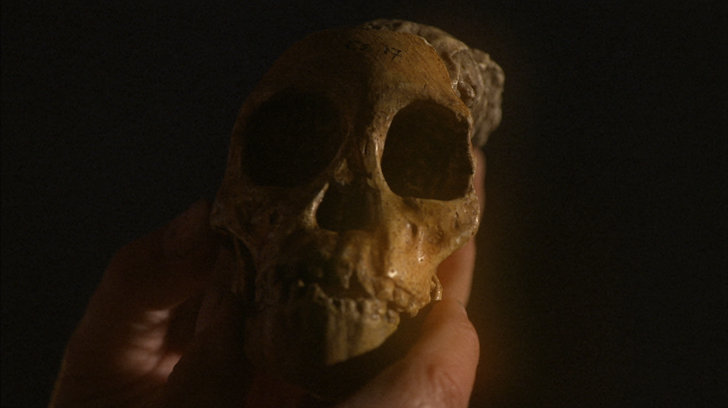In recent decades, the prevailing consensus among anthropologists and geneticists has increasingly shifted towards the assertion that all modern humans (Homo sapiens) can trace their lineage back to a common origin in Africa. While this scientific perspective offers a compelling narrative grounded in genetic evidence, it also invites a reevaluation of cultural relativism—the notion that one’s beliefs and practices must be understood in their cultural context. The intersection between DNA evidence of human origins and cultural relativism has sparked profound curiosity, revealing deeper reasons for humanity’s fascination with its own origins.
Initially, it is important to underscore that the concept of a singular origin gives rise to a multitude of interpretations across various cultures. The enigmatic notion of an “Out of Africa” migration theory posits that early humans left Africa in multiple waves, eventually populating the globe. This theory has been extensively corroborated by genetic analysis, particularly through mitochondrial DNA studies, which trace maternal lineages and demonstrate a common ancestry rooted in African populations. Such genetic findings pose intriguing questions: How does this shared heritage resonate across diverse cultures? What implications does it have for beliefs about identity, morality, and interconnectedness among humanity?
To unpack these inquiries, one must consider the implications of cultural relativism in the context of shared human ancestry. Each culture crafts its own myths and narratives pertaining to human existence, often conveyed through stories, art, and rituals. For instance, many indigenous populations possess creation stories that emphasize a unique relationship with their land and environment. These narratives serve not only as a means of explaining human existence, but also as frameworks within which individuals derive their identities and sense of belonging. The African origin narrative, viewed through a culturally relativistic lens, may appear reductive to those who prioritize their unique historical and cultural experiences. Acknowledging these perspectives necessitates an openness to pluralism in understanding human origins.
Furthermore, examining the deep-seated fascination with the African origins narrative reveals inherent human tendencies toward myth-making and the search for identity. The allure of tracing one’s lineage back to a shared ancestor resonates powerfully, reflecting a universal yearning for connectivity. Psychological motivations, such as the need for belonging and the quest for understanding one’s place in the universe, fuel the desire to comprehend our beginnings. This human inclination transcends geographical boundaries, as individuals globally wrestle with existential questions of identity, purpose, and ancestry.
However, such considerations also pinpoint a critical intersection where science interacts with narratives steeped in tradition. The scientific discourse asserting a common ancestry has not always harmonized with cultural worldviews that emphasize distinctiveness and particularity. This dichotomy raises ethical questions regarding representation and acknowledgment. It is essential to recognize that the historical narratives of various populations are valid and rich; the overarching story of human origins must not overshadow the intricacies of individual cultural histories.
A salient case of this tension can be observed among Indigenous peoples in the Americas, whose cosmologies and traditions often provide counter-narratives to mainstream scientific accounts. These cultures have their own theories about creation and existence, many of which diverge significantly from the scientific consensus of a singular African origin. A refusal to accommodate these worldviews, or to dismiss them as misguided, can lead to a form of cultural imperialism that undermines the value of indigenous knowledge systems.
Additionally, the dissemination of genetic research raises questions about ownership and interpretation. As advances in DNA sequencing technology continue to reveal intricate patterns of migration and ancestry, who holds the authority to interpret these findings? Herein lies an ethical conundrum: scientific inquiry must navigate the cultural sensitivities of lineage and migration, ensuring that it does not appropriate or commercialize the narratives of marginalized groups. Collaborative approaches that engage local communities in genetic research can foster a more inclusive understanding of human origins, allowing for a fusion of scientific inquiry and cultural heritage.
Moreover, as globalization blurs cultural boundaries, the notion of shared ancestry becomes even more complex. In a world marked by intermingled genetic lineages and multicultural identities, the quest for origins may serve as a powerful reminder of shared humanity, potentially fostering empathy and solidarity across cultures. The convergence of scientific evidence and cultural narratives has the power to unite disparate groups by emphasizing the common threads of human experience, enabling a broader discourse on unity and diversity.
Nevertheless, as humanity grapples with questions of identity and belonging, it is imperative to approach the dialogue on human origins with nuance. By fostering a discourse that respects cultural relativity while simultaneously embracing scientific inquiry, society can cultivate an enriched understanding of shared ancestry—recognizing both the scientific and the storytelling dimensions of human existence. Consequently, this approach facilitates a more profound connection to our roots and assists in illustrating that while we may share a biological inheritance, our diverse cultural narratives enrich the tapestry of human experience.
In conclusion, the convergence of DNA evidence mapping human origins with cultural relativism illuminates profound insights into the nature of humanity. The inquiry into whether “we are all from Africa” is not merely an exploration of genetics; it is an engagement with the varied narratives that shape our lives. Understanding human origins through this lens cultivates a recognition of our interconnectedness while honoring the distinctiveness of diverse cultural heritages, ultimately facilitating a more holistic appreciation of what it means to be human.
